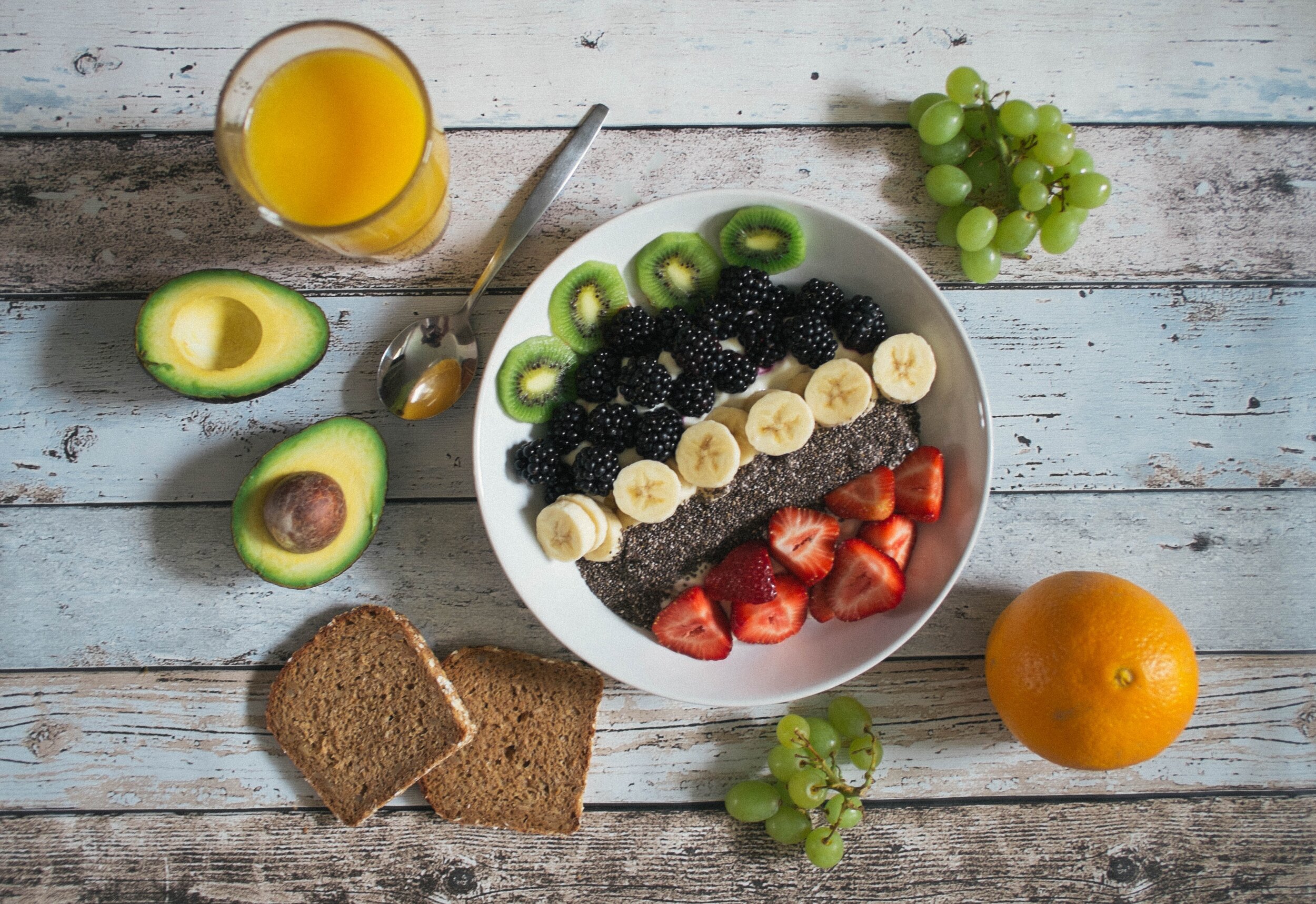3 Fat Burning Myths That Need to Die
We’ve all wanted to lose some body fat at some point in our lives. It’s nearly everyone’s goal.
Because of that, the health and fitness space has always been putting out content to educate consumers on what they can do (and what they can buy) to help them lose that stubborn body fat. As more and more of that content gets pushed out, the odds of consumers getting misleading information increases drastically.
There are tons of myths out there. Some that don’t cause too much damage, and some that absolutely need to die because they are actually keeping people from reaching their fat loss goals.
MYTH #1: CARDIO IS THE BEST FORM OF EXERCISE FOR FAT LOSS
Does a cardio session burn a lot of calories? Absolutely. But that doesn’t mean it is best for fat loss.
To lose weight, we need to be burning more calories than we are eating. This weight loss may be water, fat, muscle, or a combination of them all. If we are lifting weights and eating enough protein, that loss of weight is more likely to be fat loss.
Well, if we need to burn more calories than we take in during the day, wouldn’t cardio be best because it burns the most amount of calories? Not quite. Although cardio is one of the better ways to burn lots of calories, it has its cons.
One of the amazing things about our design is that when we expose our body to a certain stimulus/environment (like doing cardio) our body adapts and becomes better at that stimulus/environment. Our adapts to cardio by becoming more efficient at burning calories. The more efficient it is at burning calories (burns fewer and fewer calories), the longer we can last.
In and of itself, this is a REALLY good thing. If I were out in the wild barely getting any food and traveling miles and miles, I would want to burn few calories to keep myself from dying. In modern life, this is not necessarily a good thing. Food is abundant (and a lot of it is calorie-dense and highly processed), and our lives are pretty sedentary. When you pair up readily available food, a sedentary lifestyle, and a slower metabolism, it is a recipe for fat gain.
Those that begin doing cardio on a consistent basis see results relatively quick, but find themselves hitting a wall not too long after. They quickly get to a point where they’re not losing fat the same way they did before. That is because their body has become more efficient (slower metabolism) at burning calories. When they hit that wall, they either need to workout even more and/or eat even less. There is only so little you can eat and only so much you can train. There must be a better way.
There is.
Just like you can make your metabolism slower, you can make your metabolism faster by lifting weights with the intention of getting stronger and building muscle. As you lift weights, your body will be come less efficient at burning calories. When it comes to losing fat in modern life, this is a great thing. You’ll burn more calories throughout the day. Your basal metabolic rate (the calories you burn at rest) will increase, which makes up over 60% of the calories you burn each day!
The key to losing fat is relying on strength-training to get you to your goal, and use cardio as a boost when you absolutely need it. Remember, cardio is most effective when you are least used to it.
MYTH #2: SMALLER MEALS BURNS MORE CALORIES THAN LARGER MEALS
The metabolism is one of the most complex things in this universe. It is really difficult to understand. Because of that, we’ve theorized a lot of things. One of them being the metabolism is like a furnace. You gotta keep the fire stoked to keep the wood burning.
This theory turned into the idea that if you eat more meals in the day, your metabolism keeps working and working and working leading to more and more calories burned. This isn’t really the case.
At the end of the day, weight loss and weight gain ultimately comes down to the amount of calories you burn vs. the amount of calories you consume. If you eat seven meals a day but you’re eating more than you need, you’re going to gain weight. If you’re eating two meals a day but you’re eating more than you need, you’re going to gain weight. The same is true for losing weight. You can have six meals a day or one meal a day. If you’re eating less than you need, you’ll lose weight.
There is a teenie tiny hint of truth in this myth. There are certain foods that require more calorie burn in order to digest. For example, protein takes more energy to digest than carbohydrates do. Therefore, having a diet that is a little higher in protein may help you burn more calories. But remember, if that increase in protein causes you to eat more calories than you need to lose weight, it’s a wash.
What I’ve taught my clients is that the method that helps you be the most consistent is the method that is best for you. If you need to eat 1800 calories per day to lose weight, eat the amount of meals that allows you to reach that goal and keep from going over. For some, that may be three meals, for others it may be five. What matters most is consistency. Consistency is king.
It doesn’t matter how many meals you eat in the day. Eat the amount of meals that allows you to reach your nutritional goals that are required for you to lose body fat.
MYTH #3: IN ORDER TO BURN BODY FAT, YOU NEED TO BE IN THE FAT BURNING ZONE
I hate this one the most.
Most health and fitness myths contain a tiny bit of truth. This is one of those myths.
The fat burning zone is something that was discovered a while ago when people found that the most body fat is burned for fuel when the heart rate is in a specific range. As a result, products like MyZone heart rate monitors came out to help people stay in the fat burning zone during their workouts.
In my opinion (as well as the opinion of many other professionals), these monitors are nothing but a distraction for those wanting to lose body fat. You see, there are ripple effects to things. When you tell people that they need to be in the fat burning zone to burn body fat, they begin worshipping the fat burning zone, and forget about everything else involved with fat loss.
Remember, burning fat comes down to calories in vs. calories out, but there are several factors that play a role in that energy balance such as the speed of the metabolism, hormones, and more. As a result of paying too much attention to the fat burning zone during workouts, people forget that they also need to track their food intake. They also don’t realize that getting their heart rate up into the “fat burning zone” requires intense cardiovascular effort. The more cardio is done on a consistent basis, the slower the metabolism gets. And calorie burning trackers don’t take this into consideration. It will eventually be telling them that they burned hundreds more calories than they actually did. And what’s the result? They eat 500 calories more because their watch told them that they burned that many calories during their workout. But in reality they burned 200, so they just ate 300 extra calories that they didn’t need. Add that up day over day, week over week, they could be gaining a pretty decent amount of extra body fat.
In my professional opinion, based on years of experience training hundreds of clients, the people who have the most success losing body fat are the ones focused on increasing their strength in the gym and keeping their calories where they need to be for fat loss. Both of these actions lead to a faster metabolism and better nutritional behaviors that will benefit them for the rest of their lives.
Those that have the least success are those that get obsessed with calorie trackers, fat burning zones, and the next fat loss fad that promises them the results they’ve always wanted.
THE TAKEAWAYS
Cardio may burn lots of calories, but only for the short term. Use strength training to speed up your metabolism for more successful long-term fat loss.
The amount of meals you eat in the day doesn’t matter. Do what allows you to be the most consistent in hitting your calorie and nutrient goals.
The fat burning zone doesn’t mean anything if you’re eating too many calories. Use your energy to pay attention to what matters most which is calories in vs. calories out.
ABOUT THE AUTHOR
Adam is a fitness professional, baseball fan, and cookie fanatic based in Fort Collins, Colorado. After hanging up the cleats, he found a strong interest in the human body and how it performs. Since then, Adam has been transforming lives through fitness in a fun and encouraging atmosphere. As an ACE CPT and Fitness Nutrition Specialist, he is constantly moved to help people improve in all walks of life.
WANT MORE FREE CONTENT?
Download any of our guides for FREE in the “free” tab at the top of the page.




